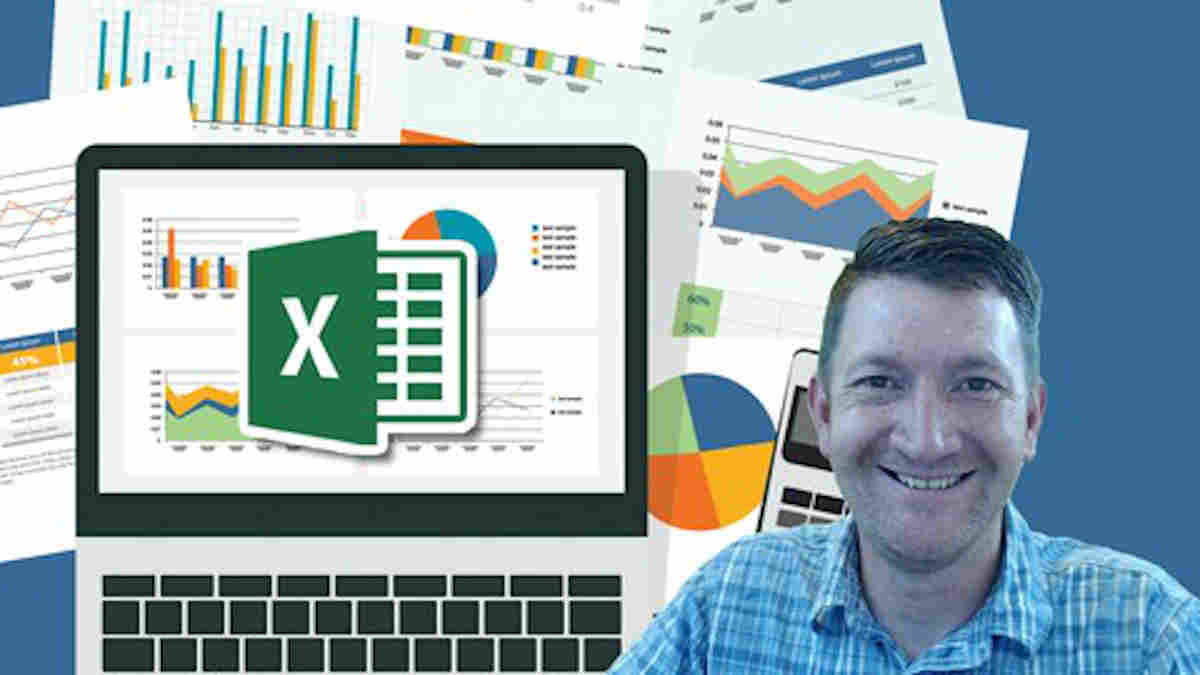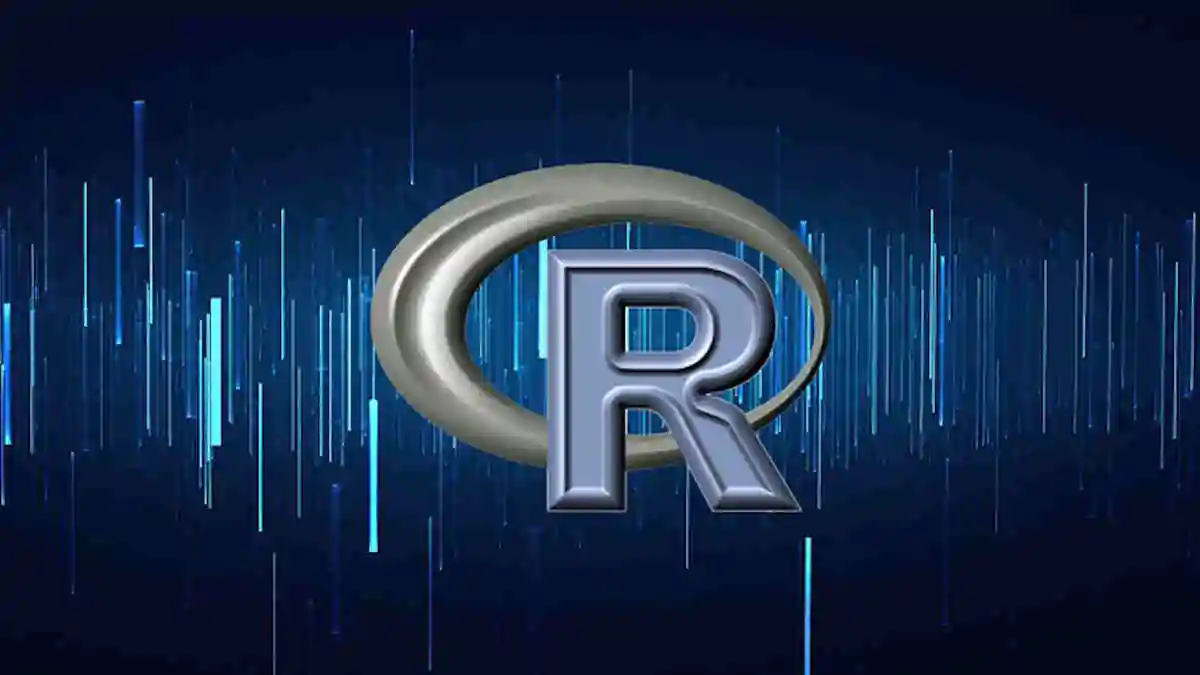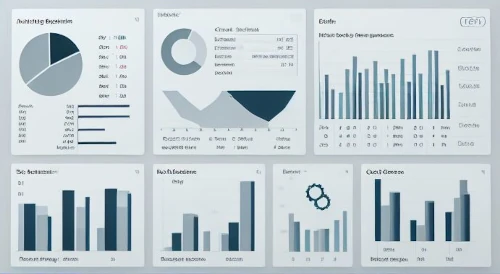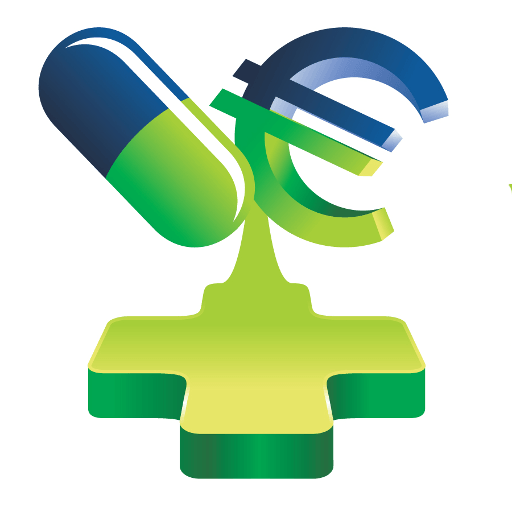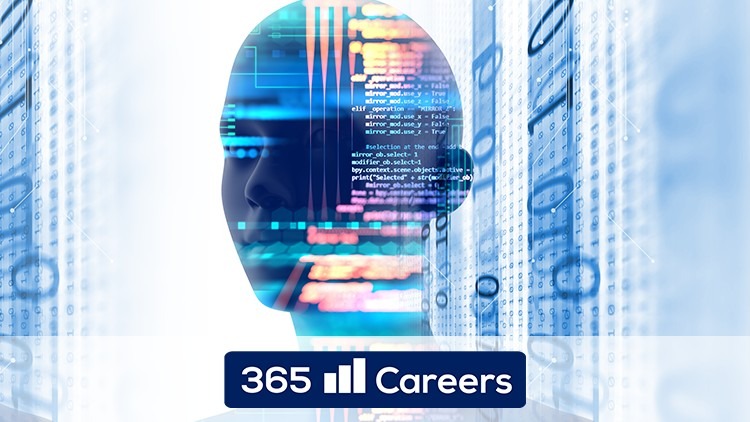
Complete Data Science Training: Mathematics, Statistics, Python, Advanced Statistics in Python, Machine & Deep Learning.
What Will I Learn?
- The online course provides the entire toolbox you need to become a data scientist
- Fill up your resume with in demand data science skills: Statistical analysis, Python programming with NumPy, pandas, matplotlib, and Seaborn, Advanced statistical analysis, Tableau, Machine Learning with stats models and scikit-learn, Deep learning with TensorFlow
- Impress interviewers by showing an understanding of the data science field
- Learn how to pre-process data
- Understand the mathematics behind Machine Learning (an absolute must which other courses don’t teach!)
- Start coding in Python and learn how to use it for statistical analysis
- Perform linear and logistic regressions in Python
- Carry out cluster and factor analysis
- Be able to create Machine Learning algorithms in Python, using NumPy, statsmodels and scikit-learn
- Apply your skills to real-life business cases
- Use state-of-the-art Deep Learning frameworks such as Google’s TensorFlowDevelop a business intuition while coding and solving tasks with big data
- Unfold the power of deep neural networks
Requirements
- No prior experience is required. We will start from the very basics
- You’ll need to install Anaconda. We will show you how to do that step by step
- Microsoft Excel 2003, 2010, 2013, 2016, or 365
Description
The Problem
Data scientist is one of the best suited professions to thrive this century. It is digital, programming-oriented, and analytical. Therefore, it comes as no surprise that the demand for data scientists has been surging in the job marketplace.
However, supply has been very limited. It is difficult to acquire the skills necessary to be hired as a data scientist.
And how can you do that?
Universities have been slow at creating specialized data science programs. (not to mention that the ones that exist are very expensive and time consuming)
Most online courses focus on a specific topic and it is difficult to understand how the skill they teach fit in the complete picture
The Solution
Data science is a multidisciplinary field. It encompasses a wide range of topics.
- Understanding of the data science field and the type of analysis carried out
- Mathematics
- Statistics
- Python
- Applying advanced statistical techniques in Python
- Data Visualization
- Machine Learning
- Deep Learning
Each of these topics builds on the previous ones. And you risk getting lost along the way if you don’t acquire these skills in the right order. For example, one would struggle in the application of Machine Learning techniques before understanding the underlying Mathematics. Or, it can be overwhelming to study regression analysis in Python before knowing what a regression is.
So, in an effort to create the most effective, time-efficient, and structured data science training available online, we created The Data Science Course 2019.
We believe this is the first training program that solves the biggest challenge to entering the data science field – having all the necessary resources in one place.
Moreover, our focus is to teach topics that flow smoothly and complement each other. The course teaches you everything you need to know to become a data scientist at a fraction of the cost of traditional programs (not to mention the amount of time you will save).
The Skills
1. Intro to Data and Data Science
Big data, business intelligence, business analytics, machine learning and artificial intelligence. We know these buzzwords belong to the field of data science but what do they all mean?
Why learn it? As a candidate data scientist, you must understand the ins and outs of each of these areas and recognise the appropriate approach to solving a problem. This ‘Intro to data and data science’ will give you a comprehensive look at all these buzzwords and where they fit in the realm of data science.
2. Mathematics
Learning the tools is the first step to doing data science. You must first see the big picture to then examine the parts in detail.
We take a detailed look specifically at calculus and linear algebra as they are the subfields data science relies on.
Why learn it?
Calculus and linear algebra are essential for programming in data science. If you want to understand advanced machine learning algorithms, then you need these skills in your arsenal.
3. Statistics
You need to think like a scientist before you can become a scientist. Statistics trains your mind to frame problems as hypotheses and gives you techniques to test these hypotheses, just like a scientist.
Why learn it?
This course doesn’t just give you the tools you need but teaches you how to use them. Statistics trains you to think like a scientist.
4. Python
Python is a relatively new programming language and, unlike R, it is a general-purpose programming language. You can do anything with it! Web applications, computer games and data science are among many of its capabilities. That’s why, in a short space of time, it has managed to disrupt many disciplines. Extremely powerful libraries have been developed to enable data manipulation, transformation, and visualisation. Where Python really shines however, is when it deals with machine and deep learning.
Why learn it?
When it comes to developing, implementing, and deploying machine learning models through powerful frameworks such as scikit-learn, TensorFlow, etc, Python is a must have programming language.
5. Tableau
Data scientists don’t just need to deal with data and solve data driven problems. They also need to convince company executives of the right decisions to make. These executives may not be well versed in data science, so the data scientist must but be able to present and visualise the data’s story in a way they will understand. That’s where Tableau comes in – and we will help you become an expert story teller using the leading visualisation software in business intelligence and data science.
Why learn it?
A data scientist relies on business intelligence tools like Tableau to communicate complex results to non-technical decision makers.
6. Advanced Statistics
Regressions, clustering, and factor analysis are all disciplines that were invented before machine learning. However, now these statistical methods are all performed through machine learning to provide predictions with unparalleled accuracy. This section will look at these techniques in detail.
Why learn it?
Data science is all about predictive modelling and you can become an expert in these methods through this ‘advance statistics’ section.
7. Machine Learning
The final part of the program and what every section has been leading up to is deep learning. Being able to employ machine and deep learning in their work is what often separates a data scientist from a data analyst. This section covers all common machine learning techniques and deep learning methods with TensorFlow.
Why learn it?
Machine learning is everywhere. Companies like Facebook, Google, and Amazon have been using machines that can learn on their own for years. Now is the time for you to control the machines.
***What you get***
- A $1250 data science training program
- Active Q&A support
- All the knowledge to get hired as a data scientist
- A community of data science learners
- A certificate of completion
- Access to future updates
- Solve real-life business cases that will get you the job
You will become a data scientist from scratch
We are happy to offer an unconditional 30-day money back in full guarantee. No risk for you. The content of the course is excellent, and this is a no-brainer for us, as we are certain you will love it.
Why wait? Every day is a missed opportunity.
Click the “Buy Now” button and become a part of our data scientist program today. Who this course is for:
- You should take this course if you want to become a Data Scientist or if you want to learn about the field
- This course is for you if you want a great career
- The course is also ideal for beginners, as it starts from the fundamentals and gradually builds up your skills
See more Data Science Courses here
Write a Guest Post?
Do you have something interesting to share with health economists? We publish guest blog posts on topics that help our fellow health economists to progress their careers, and grow professionally and personally, and in general help them to do their work better. Send us your guest post here.
